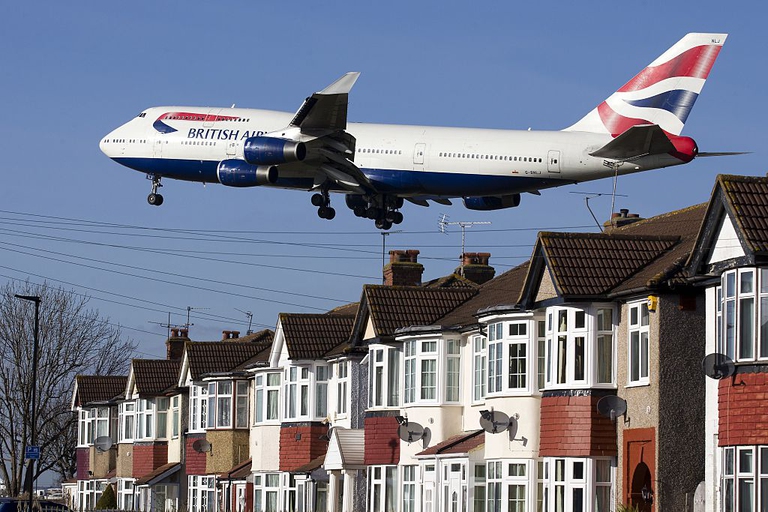
Sharon Lavigne, one of the six winners of the 2021 Goldman Environmental Prize, is fighting to protect her community from plastics corporations.
Dopo anni di dibattiti e battaglie, Londra amplierà l’aeroporto di Heathrow. Una scelta che sembra negativa per l’ambiente, la salute e non solo.
The government has approved the construction of a third runway at Heathrow, the city’s first airport in west London, at an estimated cost of 17.6 billion pounds (19.6 billion euros). Despite the city of London boasts five airports, the project will allow creating the first full-length runway in the south-east since the Second World War.
After years of debate, the government has opted to expand Heathrow rather than Gatwick, the second airport in south London that hoped to build a second runway. It took three years of researches and assessments (at a cost of 20 million pounds) for the Airports Commission, led by London School of Economics Director Sir Howard Davies, to announce the decision to expand Heathrow.
However, the environmental consequences are too often overlooked. Many have railed against the decision, including London’s mayor Sadiq Khan, who made it clear that he supported the expansion at Gatwick airport over environmental concerns.
Khan has explained that air and noise pollution in some areas near Heathrow are above safety levels already. The situation can only get worse as the expansion will bring 260,000 more flights a year.
The government has pledged not to build new infrastructures if environmental standards aren’t met and has announced the launch of a series of offset initiatives. Nevertheless, 569 hectares of land including the city’s greenbelt – 400 hectares of green areas – will be used for the expansion.
The project will also involve the demolition of some 800 houses and will imply higher costs for taxpayers due to infrastructural adjustments to transports to the airport. Among other works, a stretch of the six-lane M25 motorway will be tunnelled, as long as the third runway won’t be built over the M25. Moreover, an incinerator will be moved elsewhere and an alluvial plain will be damaged, compromising its purpose of handling with floods.
Compared to Heathrow, estimations show that an expansion at Gatwick airport would have had half the construction costs (7.6 billion pounds), reduced public investments, faster construction times and a lower environmental impact (167 buildings demolished against 783). Moreover, buried government figures have revealed that the economic benefits of expanding Heathrow airport were overstated by up to 86 billion pounds, virtually the same benefits as expanding Heathrow.
Taking all advantages offered by Gatwick airport into consideration, some have claimed that Sir Howard’s decision is unfair and prejudicial. Gatwick airport is thus considering legal action along with residents and environmental associations.
Air pollution is one of the main challenges the government is facing. Unfortunately, increasing air transport won’t help in this fight and expanding Heathrow airport will turn out to be an unbearable burden to areas already significantly affected.
Siamo anche su WhatsApp. Segui il canale ufficiale LifeGate per restare aggiornata, aggiornato sulle ultime notizie e sulle nostre attività.
![]()
Quest'opera è distribuita con Licenza Creative Commons Attribuzione - Non commerciale - Non opere derivate 4.0 Internazionale.
Sharon Lavigne, one of the six winners of the 2021 Goldman Environmental Prize, is fighting to protect her community from plastics corporations.
Plastic pollution is airborne too. Microplastics are being carried across continents by the wind, as a recent study reveals.
Levels of particulates in New Delhi in 2020 were once again far above safety thresholds, with extremely serious health consequences for its citizens.
A major oil spill in the Ecuadorian Amazon in April has left the Coca River polluted. The indigenous Kichwa are suing the companies whose pipelines broke.
Molecules that eat up plastic waste, including PET bottles, may soon become widely used as scientists leap ahead in developing new super enzymes.
In Italy’s Land of Fires between Naples and Caserta, activists like Carmen Medaglia are fighting to promote new ways of managing waste.
Toxic substances in Kamchatka’s waters have killed 95% of marine fauna and caused health problems for surfers. The causes, however, are still unknown.
A Magellanic penguin was found lifeless on a Brazilian beach: in its stomach, an N95 face mask. Researchers believe the animal died from ingesting it.
The drop in air pollution during worldwide lockdowns helped prevent thousands of premature deaths. But the situation is returning to pre-crisis levels.








